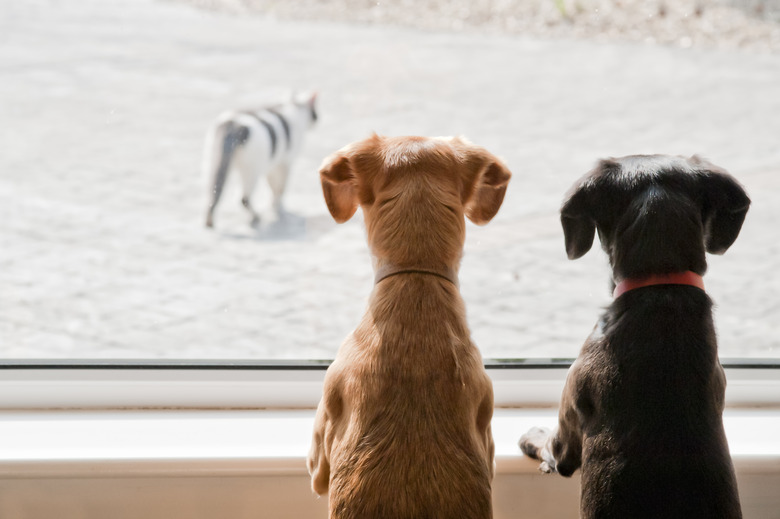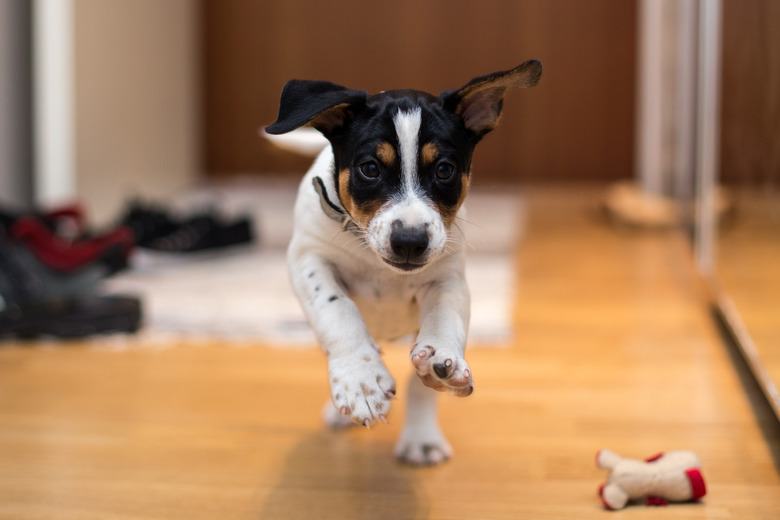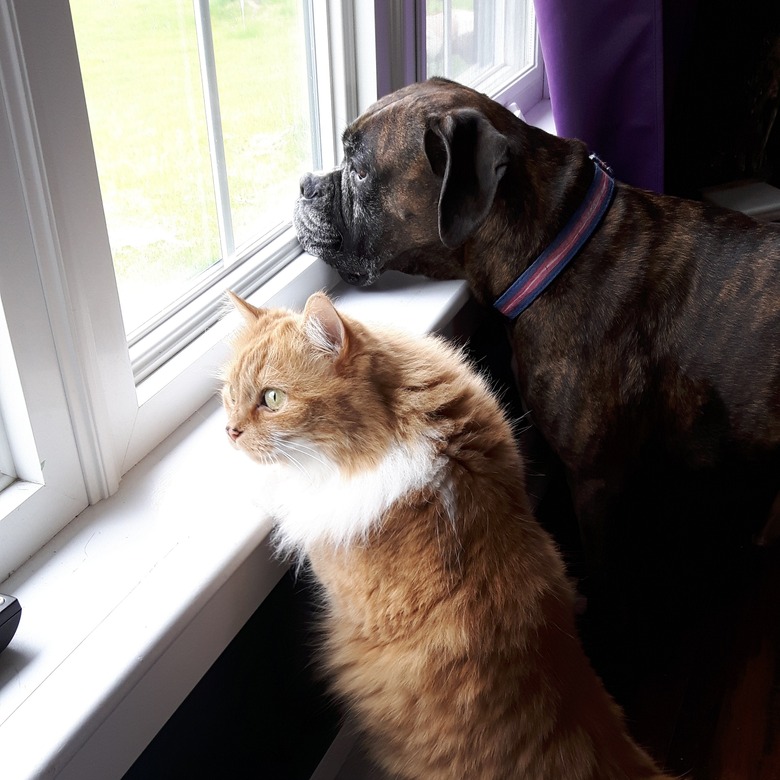Why Do Dogs Chase Cats?
Everybody loves a good chase, and your dog is no exception. You may have seen your dog chase birds, tennis balls, and yes, even his own tail. But what about when your dog chases the cat? Surely you want Fido and Whiskers to get along, but can they?
Can dogs and cats get along? Why do dogs chase cats? Luckily, we have the answers.
Does my dog hate my cat?
Does my dog hate my cat?
No, not necessarily. Dogs and cats are not foes, but their natural instincts and different tendencies, including prey drive, can cause chase behavior to occur. It is generally these differences in behaviors that cause dogs and cats to act at odds with each other, not a dislike for one another.
Why do dogs chase cats?
Why do dogs chase cats?
There are several reasons why your dog may chase your cat:
Mixed signals between dogs and cats
According to the AKC, dogs and cats have different body language, and in turn send different signals to one another that get misinterpreted. While a cat may be signaling he is irritated with a flick of his tail, a dog may interpret this as a welcome invitation to play. This crossing of mixed signals can often lead to chase behavior.
Prey drive
Your dog may have a strong prey drive, or urge to search, stalk, or chase prey, especially if he or she is a hunting breed. Your cat may be very tantalizing to your prey-driven pooch. Even though you may not be able to rid your pup of her chase behavior and prey drive, you may be able to train her not to go after the cat and other undesirables through positive reinforcement training.
Boredom
If your dog is chasing the cat, or other animals or objects excessively, he or she may be bored or anxious and may need more exercise and/or mental stimulation. Often times, chase behavior that is out of the ordinary can be a sign of lack of stimulation. Most dogs need between 30 minutes and two hours of exercise each day, depending on their age, breed, and health. In addition, dogs need mental stimulation. Try some of these mental exercises for dogs and see if that makes a difference in your dog's behavior.
Can dogs and cats get along?
Can dogs and cats get along?
Yes, dogs and cats can get along. Although dogs and cats are known to engage in chase behavior due to a dog's natural instincts to chase after moving objects, this prey drive in dogs does not mean that dogs and cats cannot get along. It may take a bit of training and rewarding your dog for good behavior when around your feline friend, but it's possible! If you're having a hard time with it, it's a good idea to find a qualified dog trainer to help you.
How can I train my dog not to chase cats?
How can I train my dog not to chase cats?
According to Best Friends Animal Society, the best way to discourage chase behavior in dogs and cats is by positive reinforcement. You can do this by rewarding your dog with treats anytime he looks away from or ignores your cat. By doing this your dog learns that he will get treats from you every time he chooses not to engage in chase behavior and instead ignores your feline friend.
You can give your kitty treats in your dog's presence, too, so she can have a positive association with your canine friend.
If chase behavior persists, your dog and cat may need more mental and physical exercise. Try giving them both more attention and stimulation during the day to subvert chase behavior, and if this doesn't work, call in a qualified trainer.
Conclusion
Conclusion
Dogs chase cats due to a difference in natural instincts and behaviors. Dogs and cats communicate differently, and this can trigger chase behavior. Depending on the breed, your dog may also have a stronger prey drive than average, which can lead to him chasing cats more than other dogs. Just because dogs have natural instincts to chase cats, does not mean dogs and cats cannot get along. You can train your dog to disengage from his or her prey drive with a little patience and lots of positive reinforcement.


